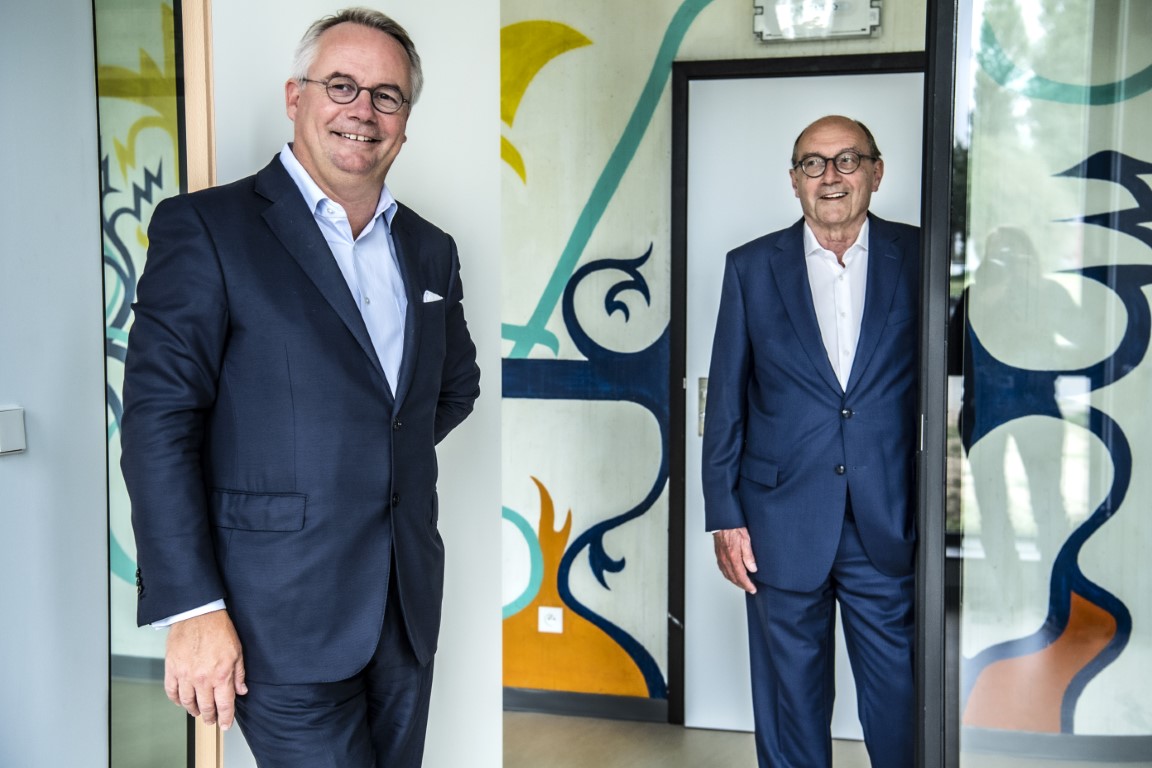On 22 September, Karsten De Clerck was on the podium for the first time as chair of the board of directors of the VUB during the academic opening, together with his predecessor Eddy Van Gelder and Rector Caroline Pauwels. But he has been closely associated with this university since the age of eighteen. An interview with the brand new chair, who is also a senior partner of the international management and consulting firm Egon Zehnder.
“My link with VUB goes back a long way. I began studying commercial engineering here when I was eighteen. On an emotional level, I’ve never really left. Of course, I’ve done many other things in my life. But the connection with the university has remained strong. With the professors I worked with then, and the students. I had fellow students then who are still connected to VUB. Six years ago, under then-rector Paul De Knop, I helped tinker with the structure of the board of directors. A year later they asked if I wanted to become a member of the board.”
What was your reaction when you were asked to become chair?
“It’s not a role you apply for. You are indeed invited. On the one hand, it was a surprise that they chose me; on the other, it wasn’t such a surprise that there would be a new chair. My excellent predecessor Eddy Van Gelder had been chair for sixteen years and had let it be known several times that he was ready to stop. The statutes stipulate that the chair must be elected from among the independent members of the Council. Apart from Eddy, there were three of them. So there was not much choice (laughs). I only know it came out of the blue and that I asked for some time to think it over, because it had consequences for my professional career at Egon Zehnder. I talked it over with my associates and chair and they thought it was a great idea.”

How do you find working with Caroline Pauwels?
“It couldn’t be any better. The advantage is that Caroline is now entering her second term and so I’ve already had four years to work with her. We understand each other and talk often. It’s not just a formal collaboration but a friendly one too.”
In her first term, Caroline Pauwels wanted to break down the walls between VUB, Brussels and the world. Now she is focusing her mandate on the theme ‘The world needs you’, and she wants to advance VUB projects inspired by the UN’s Sustainable Development Goals. Have you spoken with her about this?
“We have used the UN framework before, so it’s certainly not the case that I am the origin of the concept. It’s really about building on what was set down in VUB’s strategic plan for 2030. We have already made good progress, but Caroline and her team still have a lot in store for the future'.
What do you see as the distinction between VUB and the Flemish universities?
“First, VUB is Brussels. And this city is a gateway to Europe and the rest of the world.
VUB is also one of the two free universities in Flanders, and that gives us a distinct culture. VUB has a young and dynamic image, and the rector personifies that. That’s why we also focus on social trends and show that we are there for the younger generation.”
How do you see VUB evolving?
“Only growing and being even more of a trendsetter. You can see that reflected in how VUB is rising in several rankings. You can also see it in how VUB is occupying a more prominent place in Belgian society. How we are cited in the press, how a number of our spin-offs are doing so fantastically well. And in the research that our scientists are doing, and the ERCs [European Research Council grants] they are receiving. So the future looks good for VUB.”
You have become chair in the middle of a pandemic. Do you think this exceptional period will have an effect on the future of teaching at VUB?
“Of course, it’s not a nice situation that we are now living through. I sympathise enormously with the professors and colleagues and certainly with the students too. After all, studying is not just learning. Studying is a social and connecting phenomenon. Studying is also about life in a city, and given the corona situation, that is somewhat restricted. Of course we try to guarantee as much of the student experience as possible, but it’s not the same as before. At the same time, as Churchill put it, ‘never let a good crisis go to waste’, and we can now look at life in a different way because this crisis offers a number of opportunities too. I’m thinking of distance learning and the way in which knowledge is transferred. I think these are here to stay and will evolve further. And so we move forward with new methods, means and results.”